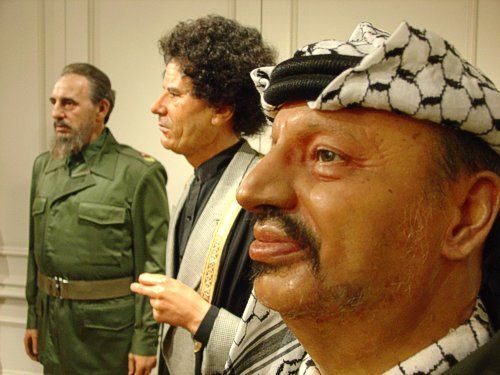
The Frozen Cuban Dictatorship is Still in the Ranks Among World’s Worst Human Rights Abusers
Cuban communists debate party overhaul
Agence France-Presse
Published: Sunday, January 29 2012
Cuba’s Communist Party opened an unprecedented two-day conference here Saturday to press for a “change of mentality” in the country’s single-party political system to match efforts to reform the economy. More than 800 delegates to the special conference have been given the task of overhauling a party that has ruled the island uncontested for 50 years but faces growing pressure to change its ways. “There is no ideology without economy,” the Communist Party newspaper Granma declared Saturday, setting the tone for the push to put the party in sync with a gradual opening of the 90-per cent state-run economy to private initiative.
Foreign Affairs
Cuba After Communism
The Economic Reforms That Are Transforming the Island
By Julia E. Sweig and Michael J. Bustamante
In 1991, Soviet President Mikhail Gorbachev stood beside U.S. Secretary of State James Baker in Moscow and announced that the Soviet Union would eliminate its multibillion-dollar annual subsidy to Cuba. Cia analysts and American pundits immediately began predicting the imminent demise of the Cuban Revolution and a quick capitalist restoration. More than 20 years have passed since then, Fidel Castro has retired, and 82-year-old Raúl Castro is now serving the first year of what he has said will be his final five-year term as president.
In 2018, when Díaz-Canel takes the reins, Cuba in all likelihood will continue to defy post–Cold War American fantasies even as it moves further away from its orthodox socialist past. For the remaining members of Cuba’s founding revolutionary generation, such a delicate transformation provides a last opportunity to shape their legacy. For Cubans born after 1991, the coming years may offer a chance to begin leaving behind the state of prolonged ideological and economic limbo in which they were raised.
Obama, meanwhile, has a choice. He can opt for the path of least political resistance and allow the well-entrenched bureaucrats, national security ideologues, and pro-embargo voices in his own country to keep Cuba policy in a box, further alienating regional allies and perpetuating the siege mentality among Cuban officials. Or he can dare to be the president who finally extracts the United States from Cuba’s internal debate and finds a way for Washington and Havana to work together. Both the Cuban people and U.S. national interests would benefit as a result.
Leave a Reply